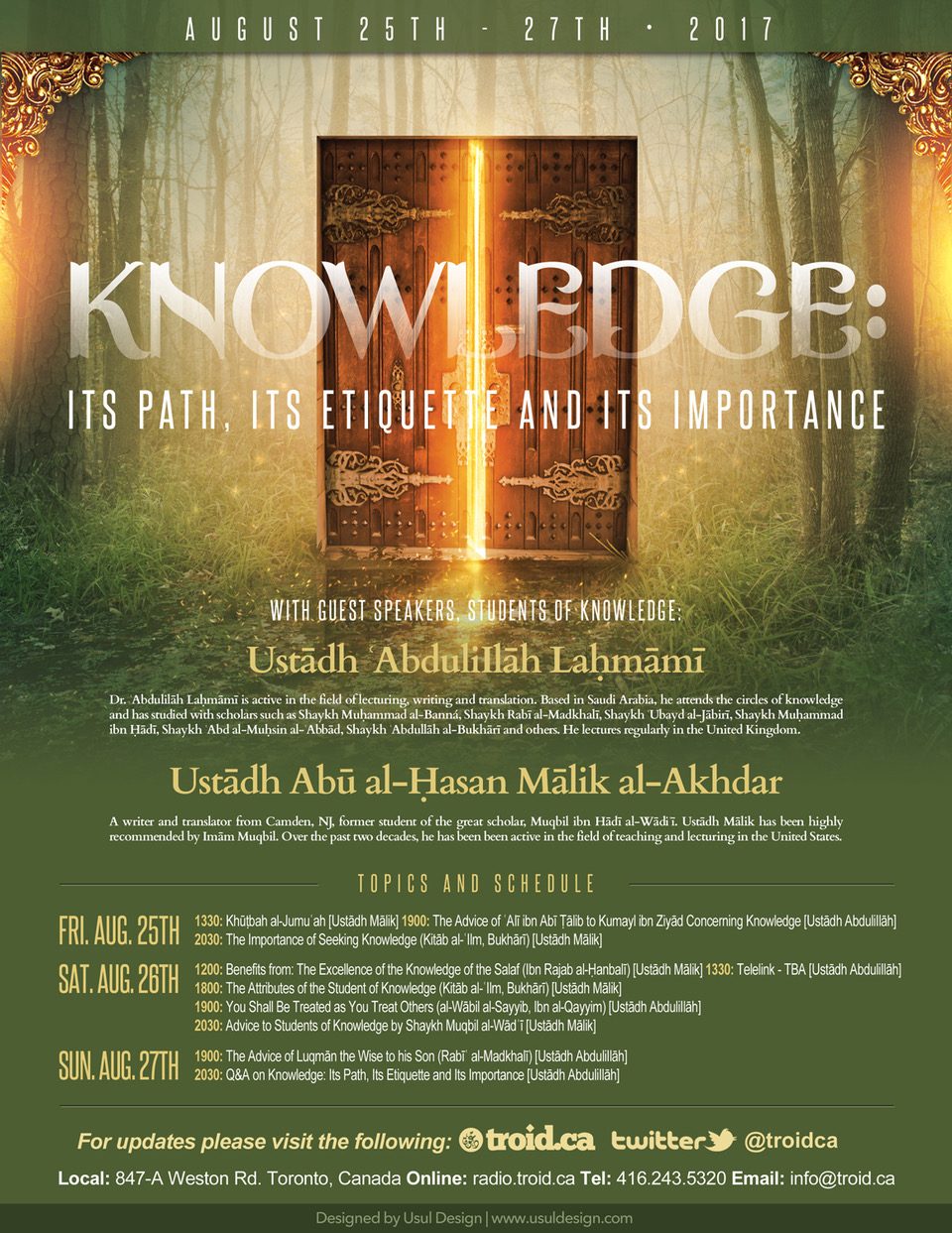وَإِن جَاهَدَاكَ عَلَىٰ أَن تُشْرِكَ بِي مَا لَيْسَ لَكَ بِهِ عِلْمٌ فَلَا تُطِعْهُمَا ۖ وَصَاحِبْهُمَا فِي الدُّنْيَا مَعْرُوفًا ۖ وَاتَّبِعْ سَبِيلَ مَنْ أَنَابَ إِلَيَّ ۚ ثُمَّ إِلَيَّ مَرْجِعُكُمْ فَأُنَبِّئُكُم بِمَا كُنتُمْ تَعْمَلُونَ
And follow the path of he who turns to Me in repentance and in obedience. Then to Me will be your return, and I shall tell you what you used to do.
[Sūrah Luqmān, 31: 15]
Al-Inābah is to repent to Allāh much. The Prophet (ṣallallāhu ʿalayhi wa-sallam) would repent to Allāh more than a hundred times a day. The Sunnah is to do istighfār after our ʿibādah in the hope that Allāh will accept our acts of worship and forgive us for our shortcomings in them. Indeed all of mankind and jinn will return to Allāh, and they will be informed of that which they used to do. Have we fulfilled the rights of others; as a child have we been dutiful to our parents and given them their rights, as parents have we fulfilled the rights of our children in caring for them, loving them, educating and cultivating them? As husbands, have we fulfilled the rights of our wives, and vice versa. Allāh (subḥānahu wa taʿāla) says in the Qurʾān,
يَوْمَ يَفِرُّ الْمَرْءُ مِنْ أَخِيهِ
وَأُمِّهِ وَأَبِيهِ
وَصَاحِبَتِهِ وَبَنِيهِ
لِكُلِّ امْرِئٍ مِّنْهُمْ يَوْمَئِذٍ شَأْنٌ يُغْنِيهِ
‘That Day shall a man flee from his brother,
And from his mother and his father,
And from his wife and his children.
Everyman, that Day, will have enough to make him careless of others.
[Sūrah ʿAbasa, 80: 34-37]
On that day, (Day of Resurrection), everyone will be concerned with themselves, fleeing from one another. Shaykh Ṣaliḥ ibn ʿUthaymīn (raḥimahullāh) said regarding this, ‘this is because none will wish for those closest to them to ask for their rights.’
Abū Bakr (raḍi allāhu ʿanhu) said, ‘If one of my feet were in Jannah, I would not feel satisfied until the other was there.’ He was also seen to be holding his tongue, and when questioned regarding it said, ‘This has caused me destruction!’ This was the state of the best of Companions, then what of us; are we in a constant state of calling ourselves to account? Are our tongues utilised in constant remembrance of our Lord, or does it only articulate that which is vile; sharp as a sword in speech aimed at the backs of our brothers?
Indeed the Messenger of Allāh (ṣallallāhu ʿalayhi wa-sallam) was neither vile in speech nor ill-mannered; rather he was exemplary in both speech and manners, possesing the best of character.
On that Day of Gathering, an atoms weight of a deed will not be disregarded; this is how precise and accurate the scales are. Therefore O’ servants of Allāh, heed the words of your Lord, and ponder upon His statement,
ا أَيُّهَا الَّذِينَ آمَنُوا اتَّقُوا اللَّهَ وَلْتَنظُرْ نَفْسٌ مَّا قَدَّمَتْ لِغَدٍ ۖ وَاتَّقُوا اللَّهَ ۚ إِنَّ اللَّهَ خَبِيرٌ بِمَا تَعْمَلُونَ
O you who believe! Fear Allâh and keep your duty to Him. And let every person look to what he has sent forth for the tomorrow, and fear Allâh. Verily, Allâh is All-Aware of what you do.’
[Sūrah al-Ḥashr, 59: 18]
and call yourselves to account before you are taken to account.














